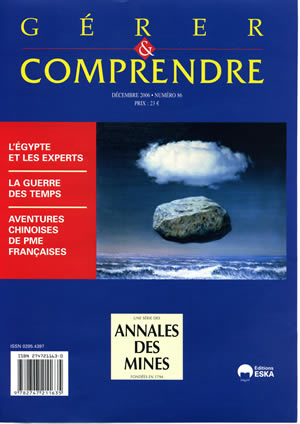|
 N° 86 - Décembre 2006 N° 86 - Décembre 2006
LE PARADOXE DU RETARD DE L’INDUSTRIE SPATIALE DANS SES FORMES ORGANISATIONNELLES ET DANS L’USAGE DES TIC
par Victor DOS SANTOS PAULINO
Université de Nice, Sophia Antipolis, DEMOD/GREDEG
L’innovation est un des thèmes majeurs de notre époque. Et, telles les Lumières, elle ne pourrait que faire progresser l’activité humaine. Or, ce présupposé est faux : l’inertie organisationnelle peut être un atout. L’industrie spatiale, dont l’objet paraît être d’innover, n’innove pas dans son organisation et rechigne à utiliser les TIC. Bien sûr, il faut nuancer. Les ingénieurs n’auront pas la même obsession de la stabilité organisationnelle et technologique, selon qu’il s’agit d’un satellite de télécommunication commandé par un client privé ou d’une mission scientifique commandée par l’Etat. Mais il n’en reste pas moins vrai que pour atteindre un optimum de fiabilité technologique, l’inertie de l’organisation peut représenter un véritable avantage concurrentiel.
 Télécharger gratuitement l'article Télécharger gratuitement l'article
 Retour au sommaire Retour au sommaire
 N° 86 - Décember 2006 N° 86 - Décember 2006
The paradox of “being behind” in the aerospace industry
Victor Dos Santos Paulino
Innovation, a major topic during our times, could but represent progress, as during the Enlightenment. However this presupposition is false, since inertia might turn out to be an advantage in organizations. Unlike what we might suppose, the aerospace industry is not innovating in its organizational forms and is even dragging its feet in using new information-based technology. This statement calls for qualifications of course. Engineers will not be as obsessed with organizational and technological stability depending on whether they are working on a telecommunications satellite ordered by a business or on a scientific project sponsored by the government. Inertia in an organization might be a competitive advantage for attaining an optimum of technological feasibility.
 Retour au sommaire Retour au sommaire
|




